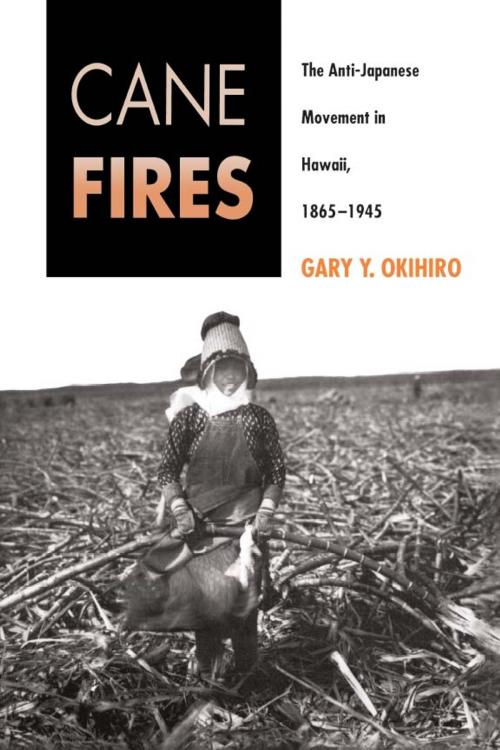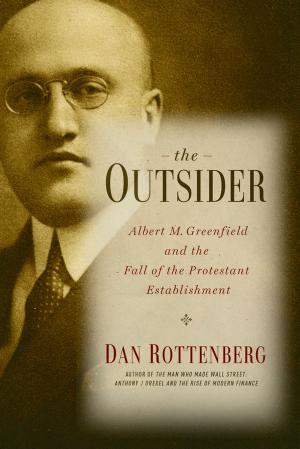Cane Fires
The Anti-Japanese Movement in Hawaii, 1865-1945
Nonfiction, Social & Cultural Studies, Social Science, Cultural Studies, Ethnic Studies| Author: | Gary Okihiro | ISBN: | 9781439907047 |
| Publisher: | Temple University Press | Publication: | October 29, 2010 |
| Imprint: | Temple University Press | Language: | English |
| Author: | Gary Okihiro |
| ISBN: | 9781439907047 |
| Publisher: | Temple University Press |
| Publication: | October 29, 2010 |
| Imprint: | Temple University Press |
| Language: | English |
Outstanding Book in History and Social Science Award, Association for Asian American Studies, 1992 "Okihiro's account is an important corrective to our understanding of the Japanese American Experience in World War II." --The Hawaiian Journal of History Challenging the prevailing view of Hawaii as a mythical "racial paradise," Gary Okihiro presents this history of a systematic anti-Japanese movement in the islands from the time migrant workers were brought to the sugar cane fields until the end of World War II. He demonstrates that the racial discrimination against Japanese Americans that occurred on the West Coast during the second World War closely paralleled the less familiar oppression of Hawaii's Japanese, which evolved from the production needs of the sugar planters to the military's concern over the "menace of alien domination." Okihiro convincingly argues that those concerns motivated the consolidation of the plantation owners, the Territorial government, and the U.S. military-Hawaii's elite-into a single force that propelled the anti-Japanese movement, while the military devised secret plans for martial law and the removal and detention of Japanese Americans in Hawaii two decades before World War II. Excerpt Read an excerpt from Chapter 1 (pdf). Reviews "Scholars of American race relations will want to read this book. So will anyone interested in Hawaii's history or in the experiences of Japanese or Asian Americans. It will go far in putting to rest any residual notion that the WWII experiences of the Japanese Americans represented 'aberration' or 'hysterical' reaction to wartime exigencies." --Franklin S. Odo, University of Hawaii at Manoa "A well-researched and well-written treatment of the subject." --Library Journal Contents Illustrations Preface Part I: Years of Migrant Labor, 1986-1909 1. So Much Charity, So Little Democracy 2. Hole Hole Bushi 3. With the Force of Wildfire Part II: Years of Dependency, 1910-1940 4. Cane Fires 5. In the National Defense 6. Race War 7. Extinguishing the Dawn 8. Dark Designs Part III: World War II, 1941-1945 9. Into the Cold Night Rain 10. Bivouac Song 11. In Morning Sunlight Notes Index About the Author(s) Gary Y. Okihiro is Associate Professor of History at Cornell University.
Outstanding Book in History and Social Science Award, Association for Asian American Studies, 1992 "Okihiro's account is an important corrective to our understanding of the Japanese American Experience in World War II." --The Hawaiian Journal of History Challenging the prevailing view of Hawaii as a mythical "racial paradise," Gary Okihiro presents this history of a systematic anti-Japanese movement in the islands from the time migrant workers were brought to the sugar cane fields until the end of World War II. He demonstrates that the racial discrimination against Japanese Americans that occurred on the West Coast during the second World War closely paralleled the less familiar oppression of Hawaii's Japanese, which evolved from the production needs of the sugar planters to the military's concern over the "menace of alien domination." Okihiro convincingly argues that those concerns motivated the consolidation of the plantation owners, the Territorial government, and the U.S. military-Hawaii's elite-into a single force that propelled the anti-Japanese movement, while the military devised secret plans for martial law and the removal and detention of Japanese Americans in Hawaii two decades before World War II. Excerpt Read an excerpt from Chapter 1 (pdf). Reviews "Scholars of American race relations will want to read this book. So will anyone interested in Hawaii's history or in the experiences of Japanese or Asian Americans. It will go far in putting to rest any residual notion that the WWII experiences of the Japanese Americans represented 'aberration' or 'hysterical' reaction to wartime exigencies." --Franklin S. Odo, University of Hawaii at Manoa "A well-researched and well-written treatment of the subject." --Library Journal Contents Illustrations Preface Part I: Years of Migrant Labor, 1986-1909 1. So Much Charity, So Little Democracy 2. Hole Hole Bushi 3. With the Force of Wildfire Part II: Years of Dependency, 1910-1940 4. Cane Fires 5. In the National Defense 6. Race War 7. Extinguishing the Dawn 8. Dark Designs Part III: World War II, 1941-1945 9. Into the Cold Night Rain 10. Bivouac Song 11. In Morning Sunlight Notes Index About the Author(s) Gary Y. Okihiro is Associate Professor of History at Cornell University.















